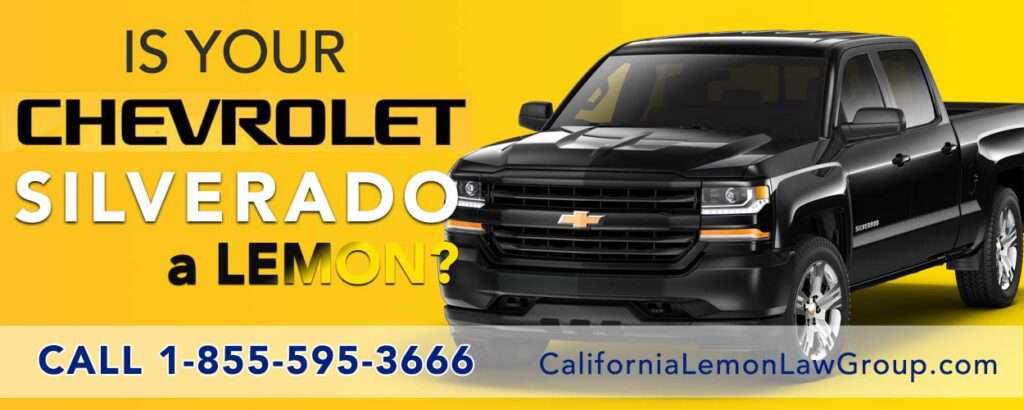
We are getting calls complaining about the Chevrolet Silverado and GMC Sierra engine Auto Stop / Start either being sluggish, jerky, or flat out not restarting at a stop sign. Thanks to the complex variable valve timing system, we are also getting calls for lifter failure, and/or a noisy valve train.
Chevrolet Silverado and GMC Sierra
The 2024 Chevrolet Silverado and GMC Sierra comes standard with a 2.7 Liter 4 cylinder Turbomax high output engine and 8 speed transmission. With 310HP and 430lb/ft of torque, this small 4 cylinder engine is using a lot of technology to make that much power and still return decent fuel mileage.
These engines are also susceptible to injector failures as well. If these or any other issues occur on your new Silverado or Sierra, please bring the truck to the dealership immediately for warranty repairs.
Your Silverado 1500 may have come equipped with the optional 5.3 liter EcoTec3 or 6.2 Liter EcoTec3 engine. While these engines have different displacements and different horsepower ratings, they are both GM small block V-8 gasoline engines from the same family and tend to have a lot of the same problems.
The Dynamic Fuel Management system (DFM) is a very complicated system that cuts fuel to cylinders when power is not needed, in order to increase fuel economy. Unfortunately, this system puts strain on the valve train and is causing lifter failure, on the passenger side of the engine. In addition, these engines are known to consume oil, and leak coolant from the heads.
Common lemon law cases we have successfully settled on behalf of California Chevy Silverado owners involve transmission and engine problems such as:
The Chevy Silverado 1500 and GMC Sierra 1500 have the same platform, engines, and transmissions so they may also share the same transmission and engine problems.
Silverado Duramax® Diesel
The 3.0 Duramax Diesel engine uses a Diesel Exhaust Fluid tank (DEF) in order to lower emissions. If this tank is not filled regularly, the computer will sense it is empty, and the engine will run under partial power. We are starting to get calls about DEF low fluid warnings, even when the tank is full, causing a safety condition where the engine will not operate under all power.
The 3.0 Duramax Diesel engine is also notorious for burning excessive engine oil, especially while towing. Please check your oil level frequently on your Silverado/Sierra If your truck is burning or consuming oil, please bring your vehicle to the dealership for an oil consumption test, and the necessary repairs.
Chevrolet 10 Speed 10L80 Automatic Transmission Issues:
We are receiving calls where the transmission makes a whining noise at speed, and shifts erratically to the next gear. The noise may be due to the idler gear coming loose, making a whining noise at first. As soon as you notice this sound, please bring the vehicle to the dealership for warranty repairs. If left alone long enough, the drive gear and transmission pump gear will also become worn, causing transmission failure.
Silverado Duramax® Diesel Recalls
Model year 2024 Chevrolet Silverado HD 2500 and 3500 are equipped with the 6.6L V8 L5P Duramax turbo diesel engine. A voluntary recall concerning the Engine Control Module (ECM) has been issued by GM. The defective ECM does not detect all trouble codes, and will not illuminate the dashboard’s Check Engine Light for the following issues:
- Change Air Cooler (CAC) low efficiency
- Exhaust Gas Recirculation (EGR) cooler low efficiency
- NOX sensor position 1 slow response
As these issues will go undetected with the bad ECM, the vehicle will need to either have its ECM reprogrammed or replaced. Please bring your vehicle to the dealership immediately if you receive this or any other recall notice from GM. (GM recall Number: N212351211)
Does a Recall Mean Your Chevy Silverado (or GMC Sierra) Truck is a Lemon?
A number of factors are involved when deciding whether or not your recalled Chevy Silverado is a lemon, such as the severity of the defect, the safety risk, the number of attempts made to try to repair your vehicle for the exact same problem, and so on. But just because GM has issued a recall on your vehicle, that does not automatically make the vehicle a lemon as defined under the California Lemon Law.
For the most part, the difference between a lemon and a typical recall is that a recall occurs when the manufacturer or dealership reaches out to the consumer regarding a known problem. A vehicle can be a lemon when the consumer notices a problem with their vehicle and they have complained to the dealership multiple times in an attempt to have the problem repaired.
Millions of cars get recalled each year to correct defects ranging from software problems to more serious problems that substantially impair your use, value, or safety. The recall notice will tell you whether or not your car is safe to drive.
Under the National Highway Traffic Safety Administration (NHTSA), manufacturers are legally required to repair any recalled issues or replace the defective part for free.
Under the California lemon law, if your vehicle is a lemon, you are entitled to:
What if Your Chevy Dealer Offers to “Buy Back” Your Chevy Truck?
In regards to any buyback offer from your GM dealer, the only way it works out in your favor is if it is done as a California Lemon Law Buyback.
The only entity that can truly buy a consumer’s car back from them under the California Lemon Law is the automobile manufacturer, not the dealership.
A dealership may offer a “buyback” and will even tell the consumer that they are “buying the car back” under the lemon law, but the dealership generally does not actually do this. What the dealership is usually doing is a dealer assisted trade-in and with a trade-in, the consumer usually ends up rolling the debt owed on their vehicle into their new car purchase. This solution does not give the consumer all of the benefits of a repurchase under the California Lemon Law.
Considering that our Lemon Law Services are ALWAYS FREE — to California residents — there’s no need for you to try to deal with a lemon vehicle on your own!
Call us at 855-595-3666
California Residents ONLY.
Year restrictions apply: Model years 2021 – 2025 Only


 Dodge RAM Pickup Transmission Problems: Lemon Law Alert
Dodge RAM Pickup Transmission Problems: Lemon Law Alert